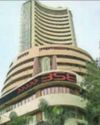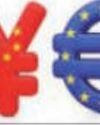
AT THE CORE of the heightened demand for a higher tariff wall, in the form of safeguard duty, on steel imports is the relative uncompetitiveness of the domestic primary steel makers. The world steel supplies remain robust, making imported cost of the alloy cheaper, even as domestic producers complain of low profitability.
At the end of November, domestic HRC (hot rolled coil) prices were trading at a significant premium of $12-16/MT compared to the landed costs of imports from China and Japan. According to analysts, import pressures are unlikely to alleviate in the coming months unless there is a meaningful recovery in international steel prices, which at this juncture looks improbable.
The government has a difficult decision to make. On one hand, it can't leave the primary steel players to face import competition, when all of them have lined up capacity addition plans. On the other, higher steel prices will exert inflationary pressures, causing price rises across the downstream steel units, and various user industries.
The current fiscal year may see a four-year low capacity utilisation level of 78% in domestic steel industry. This is even as large steel companies are already on a major capacity expansion drive, pinning hopes on the strong infrastructure investments in the Indian economy, and a buoyant construction sector. Medium-term forecasts of steel demand in India are quite bullish.
Denne historien er fra December 16, 2024-utgaven av Financial Express Kolkata.
Start din 7-dagers gratis prøveperiode på Magzter GOLD for å få tilgang til tusenvis av utvalgte premiumhistorier og 9000+ magasiner og aviser.
Allerede abonnent ? Logg på
Denne historien er fra December 16, 2024-utgaven av Financial Express Kolkata.
Start din 7-dagers gratis prøveperiode på Magzter GOLD for å få tilgang til tusenvis av utvalgte premiumhistorier og 9000+ magasiner og aviser.
Allerede abonnent? Logg på

Markets slump over 1%
● Investors' wealth down ₹4.92 lakh cr

EPFO weighs higher equity investments
● Labour ministry panel to look at ways to raise exposure

Indian firms turn to euro, yen swaps to trim borrowing cost
INDIAN FIRMS ARE opting for cross-currency swaps to convert part of their debt into the euro or the Japanese yen in order to trim borrowing costs, said bankers.
IIT-Madras to offer fine arts, culture courses
IN A FIRST for Indian Institutes of Technology (IITs), IIT-Madras on Tuesday said it would offer two supernumerary seats in each undergraduate programme to students who have achieved excellence in fine arts and culture, starting from the upcoming academic session.
Not even 2% work-linked higher education courses yet: Report
EVEN AS ASSORTED government schemes are a national skill mission aiming to make India's workforce more employable, the latest TeamLease EdTech survey has revealed that barely 2% of the higher education institutions (HEIs) in the country are offering degrees that are work-linked.
The world's busiest airline routes in 2024 are largely in Asia
● Leisure continues to outshine corporate trips
Indian firms use euro, yen swaps
ECB president Christine Lagarde hinted at a bigger 50 basis point rate cut to buffer the euro zone economy
SME IPOs fetch rich returns in Dec
THE SME IPO market continues to see heightened interest and is delivering multibagger returns despite being under the lens of the markets regulator.
EPFO weighs higher equity investments
IN FY23, the interest rate was fixed at 8.15% and 8.10% in FY22.
KYC masking to go live on Jan 20
IN A MOVE that provides relief to financial institutions, the Central KYC Records Registry has extended the deadline for masking Know Your Customer (KYC) documents to January 20 next year.